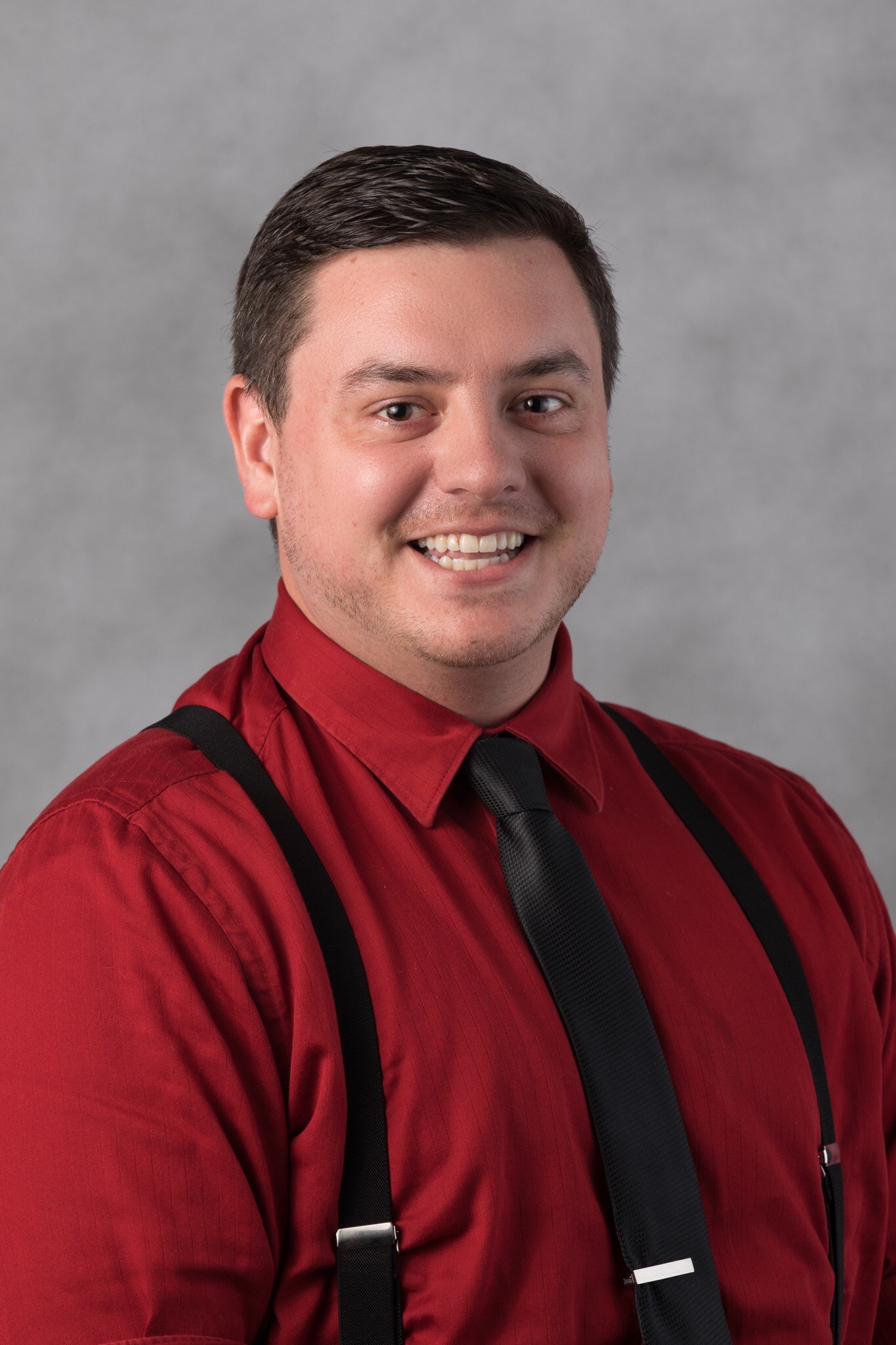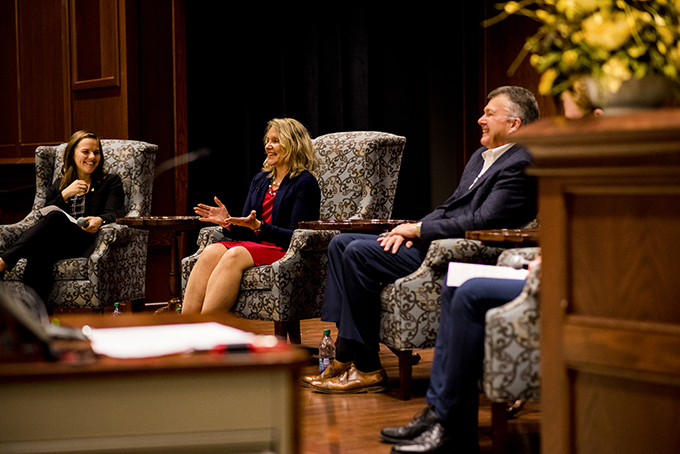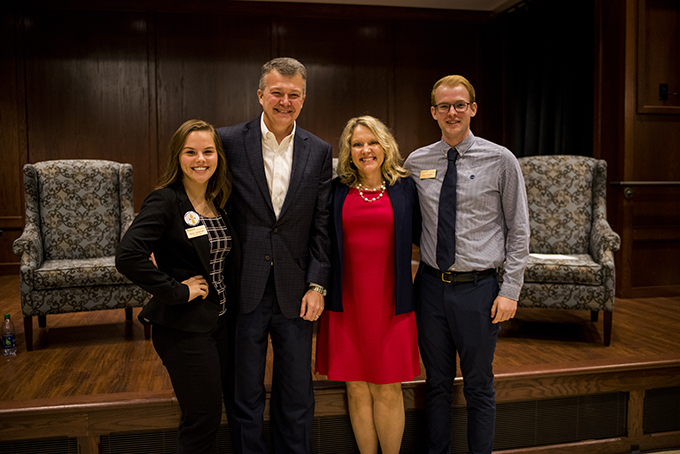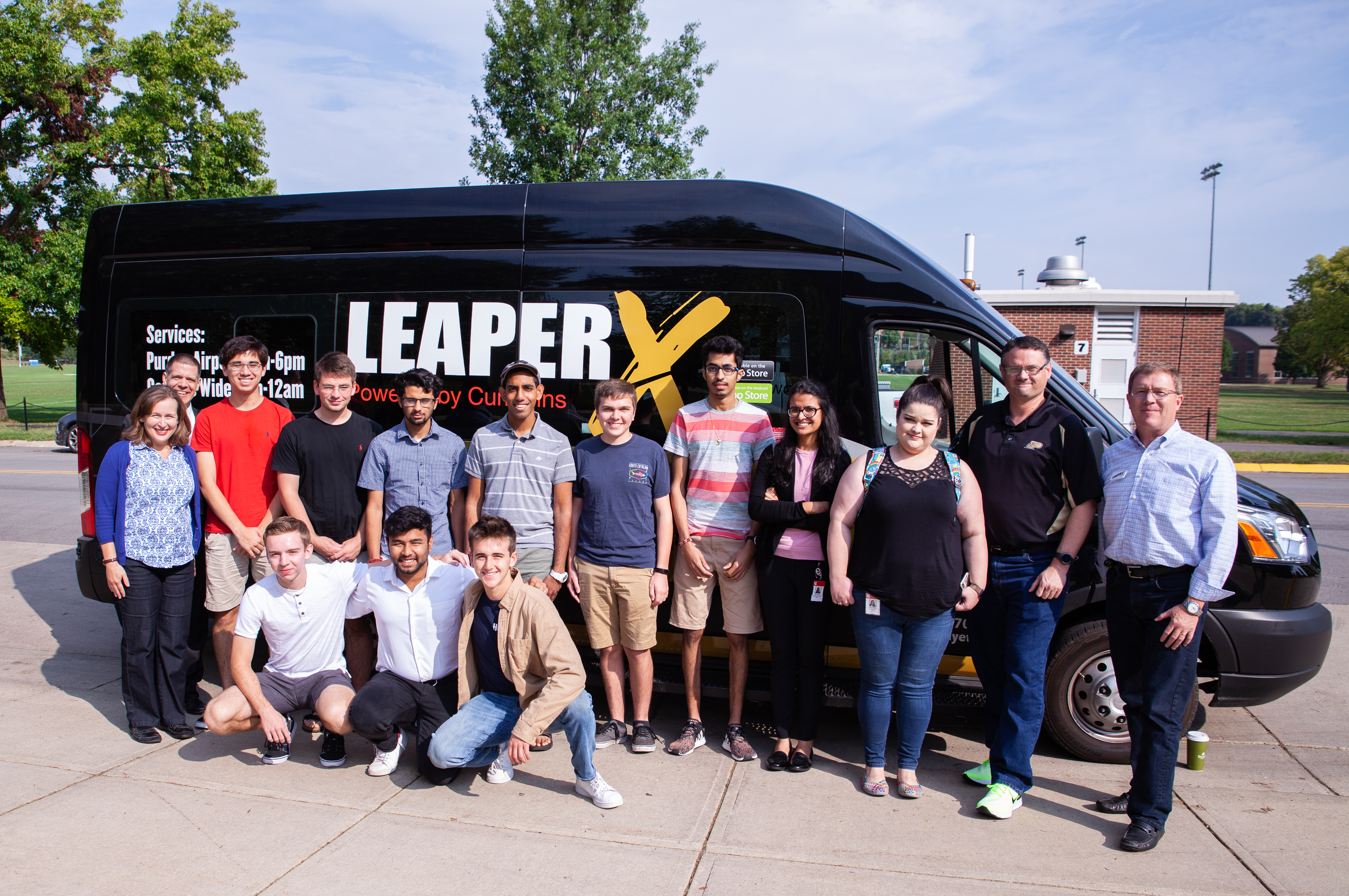
November 2019
Employee Profile
Hughes Returns to Alma Mater
Jacob Hughes knew he wanted to be a resident assistant, but making a career out of serving students was something he never anticipated.
Hughes comes from a family full of resident assistants and says his older sister played a significant role in his pursuit of a RA role. During his time as a student at Purdue (2007-14), he spent two years as a resident assistant in Earhart Hall before becoming a staff resident (a position now known as residence education assistant) in Purdue Village. He says becoming a resident assistant was a transformational experience.

“it was one of the best decisions of my life because, from a developmental standpoint, I ended up with a completely different mindset than when I came in,” says Hughes.
While Hughes’ initial approach as a resident assistant was one of enforcement, influenced in part by the studies in law enforcement he was pursuing at the time, that changed over the course of his time as a RA.
“It took some developmental conversations with my supervisors to realize that there’s a lot more to the job than policy enforcement,” says Hughes. “It was in my second year of being a RA that I really took that ball and ran with it. I had such an amazing time.”
Hughes says connecting with his residents started with making conversation and a commitment to becoming a part of the community of Earhart rather than focusing only on his own floor. He was able to connect three students who were from New York City and had never met. The students quickly became friends and remain close to this day, a connection Hughes says he takes pride in having facilitated.
While a RA, Hughes embraced the part of himself he calls a “goofball” while still serving as a leader. He remains connected with former residents and RA colleagues through annual reunions and social media apps such as GroupMe, Snapchat and Facebook.
It wasn’t until his first year of graduate school however, when one of his residents got hit by a car, that Hughes began to consider a career in student affairs. The process of helping to figure out the best way to help that student lit a spark in Hughes.
“I was working really closely with my supervisor to help coordinate after-care for the resident,” says Hughes. “In doing that, I realized I love doing this. I love supporting students.”
Hughes earned a master’s in organizational leadership and supervision before working in the residence halls system at the University of Illinois-Chicago for five years. While there, he served in several roles before hearing about the creation of a new position at Purdue. The newly created position would specialize in advising and supporting multiple residence hall organizations, which was right up Hughes’ alley.
“I love sitting down and having those conversations with students and seeing that light bulb go on in their head when they realize what it takes to become a better leader,” says Hughes.
Since July, Hughes has served as the residential student leadership coordinator. He is the primary advisor for the Residence Halls Association (RHA), co-advises the National Residence Hall Honorary and works with President’s Roundtable, which meets with club presidents from each of the residence halls to check in on how they’re doing and make sure they’re being supported. Helping student leaders in these organizations, RHA in particular, continue to build their brand and awareness on campus is a key part of Hughes’ advisory role.
The idea of servant leadership – using one’s position to serve others, rather than focus solely on their organization – figures prominently in the way Hughes interacts with students. He draws significantly on the work of Simon Sinek, an author, motivational speaker and organizational consultant, and often uses videos to help connect with students. That’s in addition to making sure the needs of each individual he interacts with has their needs met so they can improve their leadership skills.
“I have the pleasure of advising with and developing the next CEO of Boeing or the next doctor who is going to help cure cancer or the next nurse who’s going to help save a baby’s life in the ER,” says Hughes. “All of those things are very gratifying to me.”
Whether it’s assisting with organizations and student leadership or taking the time to enjoy the “All-American” Marching Band on Fridays, Hughes says he is happy to be home at Purdue and looks forward to helping students make an impact.
“Purdue has meant so much for me for my own development,” says Hughes. “There’s all these fond memories. I just really wanted to come back, be a part of someone else’s experience and help formulate all of that for them.”

Event Profile
Men's and Women's Leadership Series Join For First Time
Students, faculty and staff gathered for a panel discussion and networking opportunities at the first combined meeting of participants in the Men’s and Women’s Leadership Series earlier this month.
Changing to a concurrent schedule for the two series allowed participants to meet at a combined event for the first time in the history of either program. The men’s series had traditionally been held during the fall semester, while the women’s series followed during the spring semester. Participants in each series read “Lead Simply,” by Sam Parker prior to the combined meeting. The book is built around three principles – modeling the behavior individuals wish to see, connecting with the people an individual leads and involving them as much as possible.
Dr. Jay Akridge, Provost and Executive Vice President for Academic Affairs and Diversity, and Dr. Beth McCuskey, Vice Provost of Student Life, joined the series to provide expert testimony during a panel discussion. The two guests discussed topics presented in the book, shared anecdotes from their own leadership experiences and answered questions from those in attendance.
Anna Szolwinski and Greg Windeler, winners of last year’s women’s and men’s leadership awards respectively, served as student moderators, directing questions to each of the guests and helping to facilitate audience interaction and other discussion.

Each speaker related how they got their start in leadership. McCuskey said she can trace her leadership to a variety of roles she took on in college, ranging from roles in her sorority to her job position in the student union and even in committee groups within her field of study. Akridge shared how growing up as the son of a small-business owner impacted his ideas on how to be a servant leader. Both speakers advised that students should look for their own unique opportunities based on their interests and realize that there isn’t a perfect model to follow.
“I think it’s important to realize that there’s not a ‘one size fits all’ model to leadership,” said McCuskey. “It’s important that you play to your strengths and it’s important that you tap into those pieces and parts that are uniquely you.”
“We can learn to lead in a whole variety of contexts,” added Akridge.
No matter what students become involved with, McCuskey said, they should be constantly reflecting and thinking about what they are taking away from every experience.
“If I could ask each one of you here to learn one thing during your time at Purdue, no matter your major, it’s to learn how to reflect on what you’ve learned and be able to translate that to the next thing,” said McCuskey. “What did you learn in a particular class? What were the key things and how does that translate to the next class? What did you learn in your internship and how does that translate to interviewing for that big job?”
Akridge and McCuskey also each related stumbling blocks they have come across as they pursued leadership opportunities. Both McCuskey and Akridge intimated that failure oftentimes provide the best learning experience.
“Where I get stuck is when I look at growth as something that’s supposed to be linear or something that you’re supposed to be climbing,” said McCuskey. “Sometimes, the best lessons and the best experiences are when you take a step back.”
A lengthy question-and-answer sessions followed the panel discussion during which students and staff brought forth their concerns for discussion. One topic that drew a lengthy discussion was problem-solving among competing leadership styles and interests.
“A bit of patience and empathy goes a long way to start,” Akridge told those assembled in Honors Hall. “It’s easy in a conflict for your defense mechanism to kick in and make it very personal. Those can be your immediate reactions to a situation of conflict, but I think if you can take a deep breath, step back, put yourself in the other person’s shoes for a minute and ask why they would have that particular perspective, you can begin to have a discussion that moves things forward.”
Additional topics brought forward for discussion by participants included included learning how to find positivity in a failure, how to keep various stakeholders within an organization satisfied and who to look to for inspiration outside your own organization.
“Great ideas can come from anywhere,” said Akridge. “You’ve just got to keep your radar up for great ideas, no matter where they come from. A lot of times, the really creative ideas do come from organizations or institutions that don’t look like you. The better job you do of being sensitive and open to those things, the better job you will be able to do to help move your organization forward.”
Since its inception in 2011, the Women’s Leadership Series has provided learning and networking opportunities for more than 1,000 participants. Founded in 2017, the Men’s Leadership Series is now approaching 300 all-time participants.
Students, faculty and staff participants in the two series will have additional opportunities to network, learn from each other and participate in combined events. The two groups will gather to perform community service together on Martin Luther King Day of Service, scheduled for January 20. The two leadership series will also hold a combined session at the final meeting of the year in late January.

Members of the Corporate Partners Learning Community with representatives from Cummins Inc. in front of one of the vans used by Leaper X.
Learning Community Profile
Learning Community to Provide Insights for Leaper X Partnership
Students in The Data Mine Learning Community are assisting with the development of a new on-demand transportation service on the West Lafayette campus.
Members of the Corporate Partners Learning Community, part of The Data Mine, are analyzing data in conjunction with the launch of Leaper X. Students were provided with the initial data used by Cummins Inc. to develop the service and are working with new data being gathered during the course of business operations.
Leaper X, which debuted on campus this fall, is an app-based shuttle service that allows anyone who has a Purdue email address to self-select when and where they wish to travel between preprogrammed destinations. Shuttle services operate primarily from 6 p.m. to midnight, but are also available in a restricted capacity from 7 a.m. to 6 p.m.
Students from The Data Mine were given half a terabyte of data to begin working with on their first day of class. The initial data given to students included CityBuse ridership numbers from prior routes, residence hall volumes, GPS coordinates of campus buildings and the anticipated capacities of various campus buildings during different hours of the day. Cummins Inc. is providing additional data gathered during Leaper X operations for students to analyze. The goal is for the students to gain experience with data while contributing solutions to real-world problems.
Students chose this project among several that were presented to the Corporate Partners Learning Community. Students were given descriptions of various topics and projects, then selected their project of choice based on that description. There are 17 students from various fields of study working on the Leaper X project.
The Data Mine is a learning community that combines living, learning and research components to introduce students to data science concepts and equip them with the tools to create solutions for real-world problems. The Data Mine consists of 20 cohorts, such as Corporate Partnerships, which cater to specific areas of study. Members of The Data Mine include students from numerous courses of study.
Learning communities have become of a significant part of living options within University Residences. Learning communities allow students to connect with peers who share their interests by living in the same residence hall and attending the same classes. Students who participate in a learning community are shown to earn higher grades than their peers.
Writer: Matt Vader | Editors: Renee Kashawlic, Danielle Fawbush
Editorial Board: John Eckman, Renee Kashawlic | Inquiries Contact: studentlifemarketing@purdue.edu
